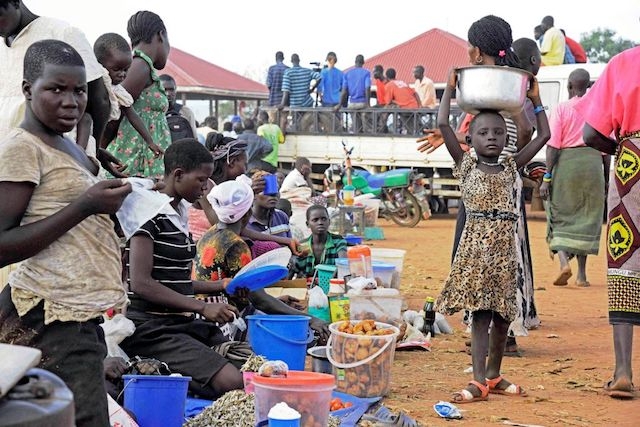A Tragedy in South Sudan
| by Eva Gudbergsdottir

“Casting my vote for independence will be a bullet aimed straight at the heart of the problem,” said Middlebury Institute alumnus Mawour Dior MAIPS ‘10 when he returned home to Sudan to participate in a referendum for independence and the creation of South Sudan in July 2011. Splitting the nation seemed for him and many others the only way to end decades of brutal civil war. Six years later, the world’s youngest nation is a failed stated with millions facing starvation, tens of thousands killed, and no end in sight for widening ethnic violence. How did it all go so wrong so quickly?
South Sudan is one of the most underdeveloped countries of the world. It lacks some of the main foundations of a successful democracy. Yet it did have a lot going for it at the beginning: potential oil revenue, apparent unity of government, and the support of the international community. Aid organizations flocked to the new capital, Juba, and the U.S. and other nations provided financial support.
“Priorities were all wrong,” says Dior from his new home in Alaska in early 2017. “Instead of focusing on peace and reconciliation for a nation that has been traumatized for years, and delivering some much needed solutions, leaders focused on grabbing power.”
“Before independence, the tribes were united in their opposition to the government in the north, but longstanding issues between them were not addressed,” says Scott Webb MPA ‘07, who oversaw humanitarian operations for Relief International in South Sudan in 2013. That year in December, Webb and Kimberly Dixon MBA ‘06, as well as many other U.S. citizens, were airlifted out after violent fighting broke out in the streets. “We heard gun battles in the street outside the compound where we were staying. I learned later that there was straight-up genocide happening in the neighborhood,” said Webb. The violence revealed the deep rift between Dinka and Nuer, the two main tribes sharing power, and ethnic violence has continued since, spreading to other groups and areas.
Instead of focusing on peace and reconciliation for a nation that has been traumatized for years, and delivering some much needed solutions, leaders focused on grabbing power.
“Tribalism played a big part in the failure,” Dior says, “but with good leadership I believe it would have been possible to create a national agenda inclusive of all groups.” He explains that a lot of power was given to ex-generals-turned-politicians, which in turn led to massive corruption and squandering of resources. Distrust of foreign aid groups, in particular the United Nations, added to the problems. He says. “Even international aid groups have a political purpose.”
Upon gaining independence from Britain in 1956, Africa’s largest and most culturally and geographically diverse country erupted into decades of civil war between the Arabic-speaking, largely Muslim North and the ethic sub-Saharan, mostly Christian or Animist South. It was in the British interest to keep the two parts of Sudan together to ward off the threat of Egyptian colonization of the northern part. Independence exposed deep fault lines between North and South.
When oil was discovered in 1978, a fragile peace agreement from a few years earlier was doomed. By 1983 the second civil war ravaged the South. In the late 1980s, around 20,000 young boys fled their homes by foot to escape rebel recruiters hunting for young fighters. Dior was one of these “Lost Boys of Sudan.” He walked for thousands of miles, surviving harsh conditions, to reach a refugee camp on the other side of the border in Ethiopia. For him, reaching Ethiopia was only the beginning of an 11-year ordeal that finally saw him reach the United States as part of special resettlement program.
Dior did not return home until he was in this 30s, shortly after graduating from the Institute in 2010. It was a big moment for him to be reunited with his family. The dream was to transition a position with a U.S. aid agency into a role in politics, but the dramatic turn of events led him to flee again, this time with his wife and son.
Although bullets in South Sudan appear to be aimed at everything but the heart of the problem, Dior has not given up hope. “I still believe it is possible to change course, but for that to happen we need real leadership.”
For More Information
Jason Warburg
jwarburg@middlebury.edu
831-647-3516
Eva Gudbergsdottir
evag@middlebury.edu
831-647-6606
